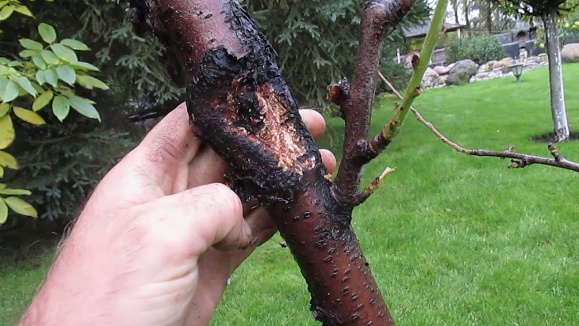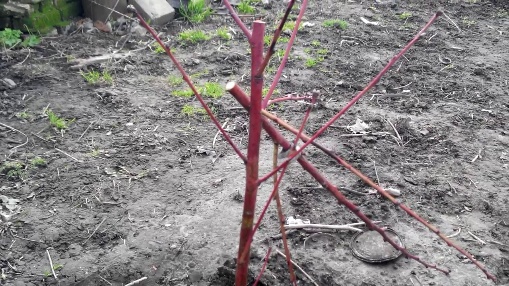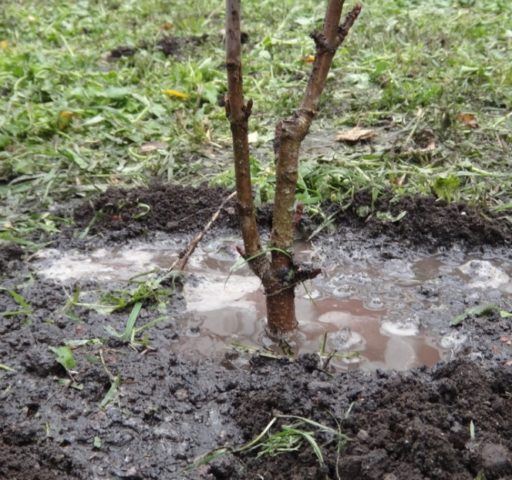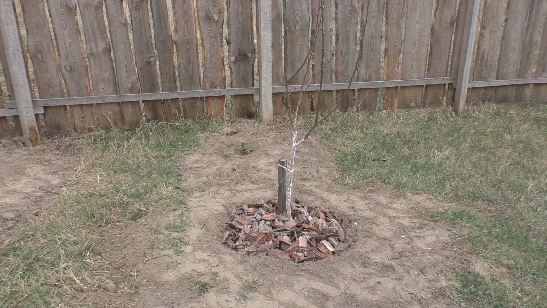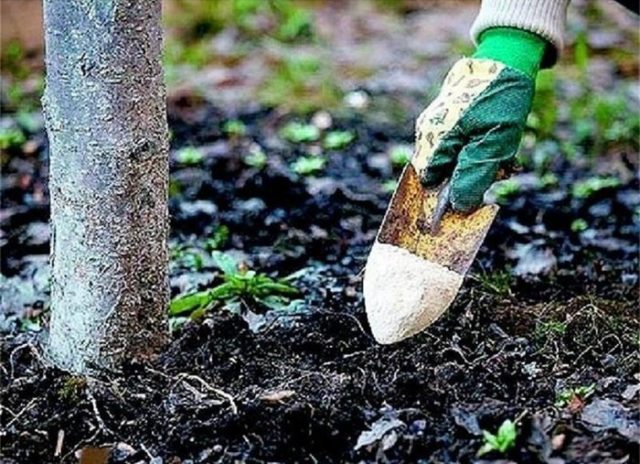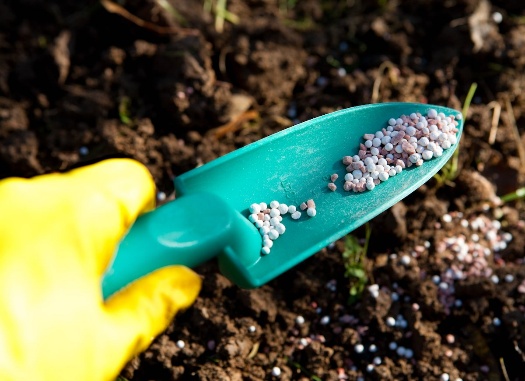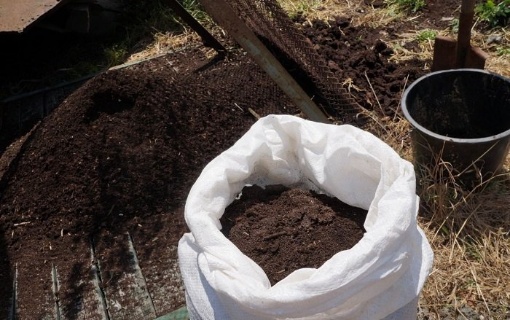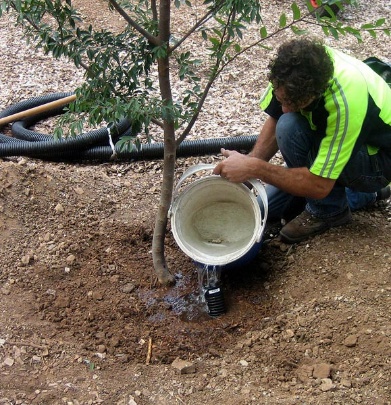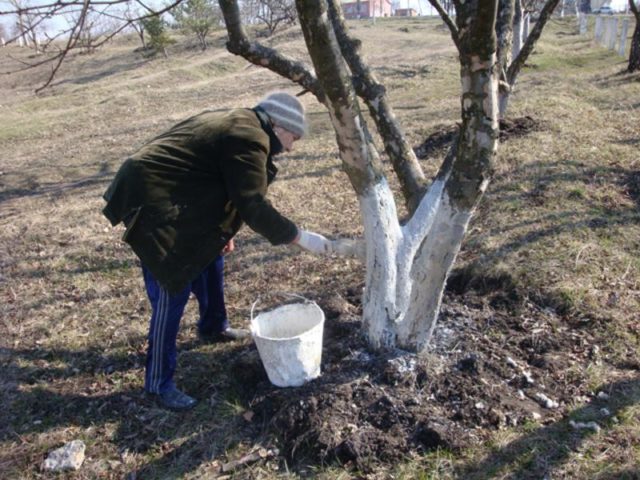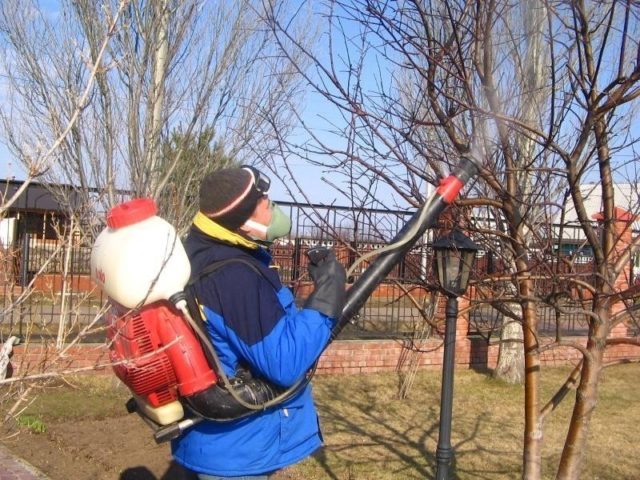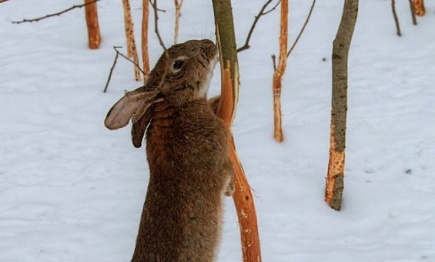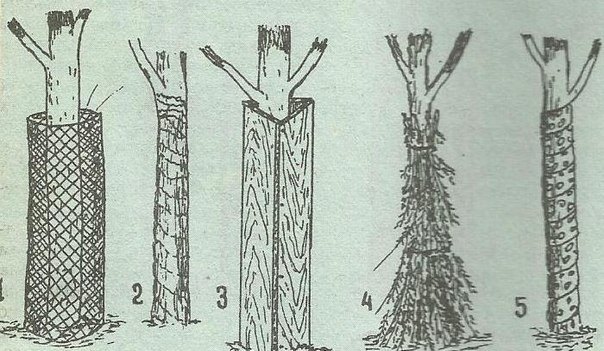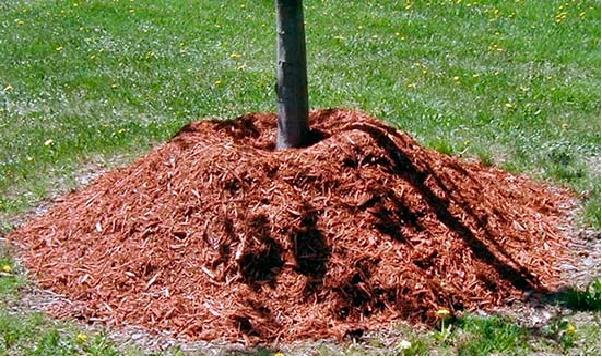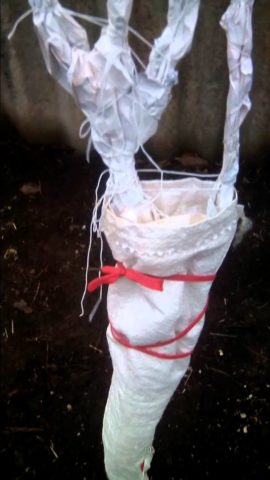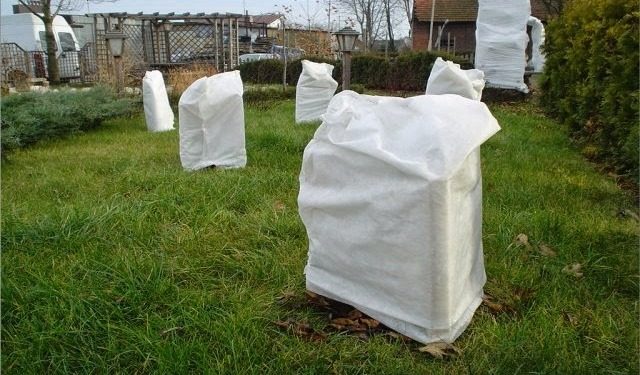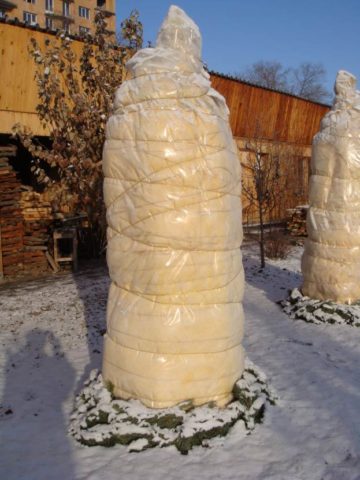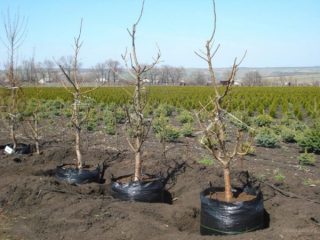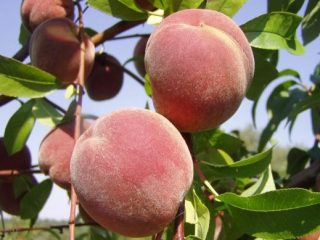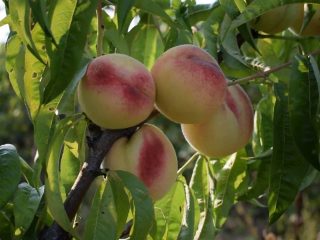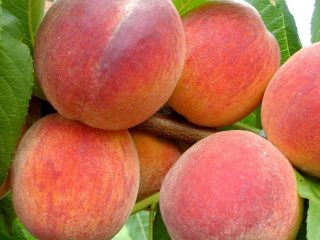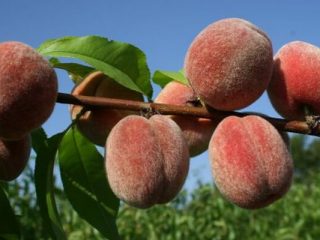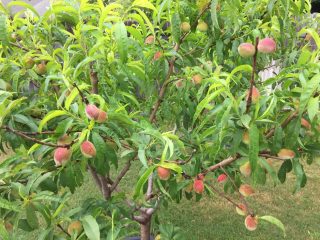Content
- 1 How to care for a peach in the fall
- 2 How to rejuvenate a peach in the fall
- 3 Digging
- 4 Loosening, mulching of the trunk circle
- 5 How to fertilize a peach in autumn
- 6 Pre-winter watering of a peach
- 7 Peach processing in autumn
- 8 How to insulate a peach for the winter
- 9 The nuances of preparing a peach for winter in different regions
- 10 Conclusion
Gardeners today have invented a lot of ways to cover a peach for the winter. Peach is a southern plant, and its advance to the north is fraught with a number of difficulties. First of all, this is the freezing of trees in winter. Depending on the region, gardeners have to cover the entire sapling with branches, sometimes only the trunk.
How to care for a peach in the fall
Preparing a peach for winter includes several stages:
- pruning;
- digging up the soil;
- top dressing;
- pre-winter watering;
- insulation.
Autumn pruning has its own nuances and is not recommended for use in northern regions. Sometimes in the stages of peach tree care in the fall, mulching is included, which does not allow the formation of an earthen crust after digging and harrowing. But the same mulch keeps pests that do not freeze out under the warming layer.
How to rejuvenate a peach in the fall
Pruning is the first step in peach care in the fall when preparing it for winter. Pruning is carried out after harvest in early autumn. Before winter, the plant should have time to heal the "wounds".
Pruning is carried out in the following cases:
- for sanitary purposes;
- to form a crown;
- to rejuvenate old wood;
- if the crown is too dense;
- for long-term fruiting.
Sanitary pruning, removal of dry and diseased branches, is carried out before covering the peach for the winter. The timing of sanitary pruning does not depend on the region.
Pruning a peach in the fall in order to rejuvenate the plant or to form its crown is permissible only in warm regions. To the north, it is better to postpone these procedures until spring. The same goes for other types of peach pruning.
Places of cuts are covered with garden varnish or other similar disinfectant.
Digging
They completely dig up all the soil in the garden to the depth of a shovel bayonet, do not break clods of earth. With the onset of frost, the water remaining in the clods will loosen the soil, and the pests that have turned out to be unprotected will die.
At first glance, this point in autumn peach care is contradicted by the procedure of loosening and mulching.
Loosening, mulching of the trunk circle
Even in industrial gardens, after plowing, the tractor also drives with a harrow to break up very large clods of soil. The result is a fairly flat and smooth surface. Large areas in the southern regions no longer require any peach cultivation. In the north from frost, you will also have to cover the trunk circle.
The gardener may not be able to manually loosen the soil in the whole garden, so it will be enough to walk with a rake or a hoe along the trunk circle. This loosening improves air exchange and promotes better water penetration into the soil.
Mulching for peach tree care in the fall is used in two cases:
- to prevent crust formation;
- to protect peach roots from freezing.
The second is relevant in regions with cold winters. They also cover the trunk circle with mulch to prevent spring from germinating. weeds... But the old tree does not care about weeds; only a young tree needs mulch.
Used as mulch:
- sawdust;
- fallen leaves;
- cut grass;
- hay;
- straw;
- chopped bark;
- dry needles;
- peat.
Mulching should be carried out as late as possible, since pests like to hide in such organics for the winter. Usually, gardeners burn all the remaining tops after harvesting.
How to fertilize a peach in autumn
In autumn, after fruiting, the peach needs feeding with almost the entire set of fertilizers:
- nitrogen;
- phosphoric;
- potash;
- natural organic matter.
Depending on the age, the need for each of the fertilizers in peach trees is different.
How to feed a peach in autumn
Peaches need organic fertilizers the most. Compost or humus is added to the soil when digging. In cold regions, organic matter can be used to insulate the roots.
When feeding peaches in autumn, they are guided by the age of the plants. The fertilizer requirements for one tree are shown in the table below.
| Young trees | 3-6 years old | 6-8 years old | Mature trees |
Humus / compost, kg | 9-10 | 14-15 | 28-30 | 25-35 |
Superphosphate, g | 70-80 | 110-115 | 170-180 | 240-250 |
Potassium salt, g | 25-30 | 45 | 65-74 | 85-105 |
Urea, g |
| 55-60 | 110-120 | 115-135 |
Another option for organic fertilization is fresh cow dung. Such fertilizer is applied no more often than once every 3 years and only on frozen soil. You cannot mix manure with soil.
You can also carry out foliar feeding of plants. With foliar autumn feeding of a peach, the crown and branches are sprayed with a solution of urea or potassium permanganate.
When to feed a peach in autumn with fertilizers
For foliar top dressing, the peach is sprayed in early autumn, when the harvest has already been taken, but at least 70% of the leaves remain on the trees. The solution is sprayed over the crown of the plants.
"Dry" fertilizers are applied to the soil before pre-winter watering. With water, nutrients will go to the roots.
How to fertilize correctly
There are rules for adding dressings:
- fertilizers are applied to holes 25 cm deep;
- the distance from the holes to the trunk is at least 30 cm;
- each type of dressing is sprinkled with a layer of soil with a thickness of 4 cm;
- phosphorus fertilizer is added first, followed by potassium;
- Nitrogen-containing top dressing can be added even on top of the soil.
The compost or humus should already be mixed with the soil.
Pre-winter watering of a peach
Watering is carried out in late autumn, when the tree has already fallen into hibernation and growth has stopped. But an obligatory condition for pre-winter water-charging irrigation: it is carried out no later than in the first days of November.
The depth of water penetration should be at least 70 cm. In order for the water to saturate the ground well, 5-6 buckets of water are required per 1 m² of the trunk circle. If the groundwater is high enough, watering can be reduced. After watering, the soil is loosened and, if necessary, mulched.
Peach processing in autumn
Before you cover your peaches for the winter, you still need to protect them from pests and sunburn. Peaches suffer from sun damage when water is inadequate. Most often, young trees with thin bark and annual shoots get burns.
The importance of peach processing in autumn
Peach care in the fall includes mandatory treatment for diseases, tree fungi and sunburn. You cannot get rid of woody fungi, but you can prolong the life of the tree. For this, diseased branches are cut off, and the affected areas are treated with copper sulfate. This will slow down the spread of mycelium, but will not stop it.
Treatment for sunburn consists in whitewashing the trunk and large branches with slaked lime. Small peach branches are sprayed with lime water at the end of autumn.
During the growing season, the plant has time to become infected with many fungal diseases, which must be eliminated by winter. Otherwise, there is no need to wait for the next harvest.Therefore, an important stage in caring for a peach and preparing it for wintering is the destruction of not only pests, but also diseases:
- moniliosis;
- powdery mildew;
- curliness of leaves;
- clotterosporia and other diseases.
To avoid the development of pathogenic organisms after the arrival of warm days, peach is sprayed with fungicides in the fall.
How to process a peach in the fall
Whitewashing when caring for a peach is carried out not only in order to avoid burns, but also to destroy harmful insects. Plants are whitewashed again in early spring, before the leaves appear.
To combat fungi, a solution of copper sulfate or Bordeaux liquid is used. The stores also sell other ready-made fungicides for peach care in the fall.
Another important point in plant care is to protect young seedlings from mice and hares. For this, mechanical and chemical means are used. Chemicals are poisons. The mechanical method is to wrap the lower part of the trunks with material inaccessible to the teeth of hares and mice. Further care of the peach depends on the choice of material. Either periodically, for airing, the shell will need to be removed, or it will be possible to make it permanent.
How to insulate a peach for the winter
After all the preliminary operations for caring for the peach have been done, the time comes when the tree needs to be sheltered from the cold. There are many ways to protect a seedling from frost. In the southern regions, where frosts do not exceed -15 ° C, peaches do not cover at all. You can apply the following methods, depending on the region:
- insulate the roots with humus;
- cover the trunk with corn stalks or spruce branches;
- cover the trunk to the grafting site with earth;
- make an analogue of a thermos around the barrel;
- cover the entire tree with an analogue of a hut;
- form a low-growing plant, make the crown hanging, and bend young shoots to the ground for the winter.
The video shows the "average" way to cover a peach for the winter.
Here the gardener uses the principle of a thermos, covering the trunk with sawdust. Branches in his region will survive if the trunk remains healthy.
The nuances of preparing a peach for winter in different regions
Caring for a peach more significantly north of its homeland differs only in the ways of sheltering the plant for the winter. If in the south for autumn care it is enough to dig up the ground and apply fertilizers, then already in the Moscow region it will be necessary to cover the trunk. You can sprinkle it with earth, you can use sawdust.
Otherwise, sawdust or dirt will get wet and damage the tree.
If the tree is very small and weak, it will be better to build a "hut" for it. The most affordable way to cover a peach near Moscow for the winter is shown in the video above. If the winter turned out to be unexpectedly cold, you can continue caring for the peaches not in the fall, but in the winter, as in the video.
There is not enough sawdust to cover a seedling in the Urals region. It is necessary not only to close the main trunk, but also to cover the branches. In this case, gardeners either wrap each branch separately, or build a hut for the entire seedling.
The hut is often made on a rigid frame. A breathable non-woven material is used as the main building material. It is undesirable to use polyethylene film, as condensation can accumulate on it.
A hut can even be made of thick paper, but in this case, all peach branches will have to be collected up. A similar preparation of a peach for winter is shown in the video below, where lutrasil nonwoven fabric is used.
Peach care in Siberia
The cultivation of southern plants in Siberia is laborious. And the main care problems arise when it is necessary to shelter such a southern guest from frost. When growing a peach in Siberia, you need to take care of the formation of its crown in advance. The tree must be bent to the ground from a young age. The yield will be lower than in the south, but the seedling will not freeze.
How to get such a crown:
- In the fall, after the leaves have fallen off, the tree is bent to the ground. This is done on warm days, as branches can break in frost.
- The seedling is always bent in one direction, so you need to immediately choose where to bend the plant. Pegs are driven into the ground and the trunk and branches are pulled to them with ropes.
- Unbending and broken branches are cut off, and the cut is covered with garden pitch.
As a result, you should get an analogue of polar trees, which almost creep along the ground to keep warm. Caring for such a peach in Siberia will be much easier, since it will be easy to cover it and keep the fruit buds from freezing.
Conclusion
Peach care in autumn is basically the same in all regions. The difference lies in the way the plants are protected from frost. To obtain a crop, it is necessary to choose a method of protection suitable for a particular region.
